


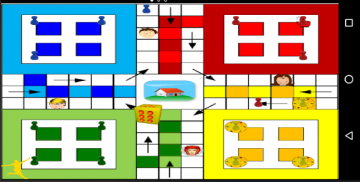
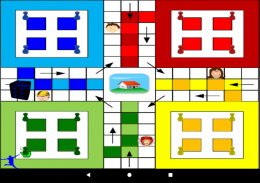
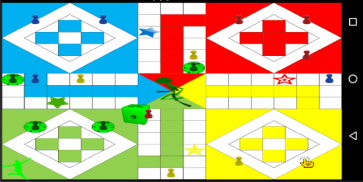
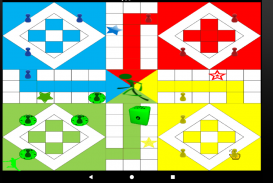
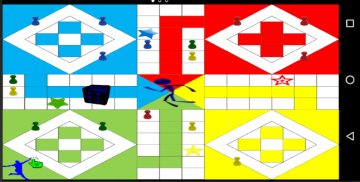
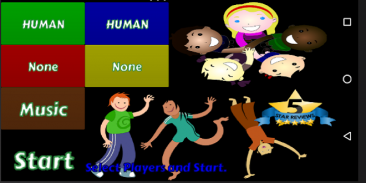
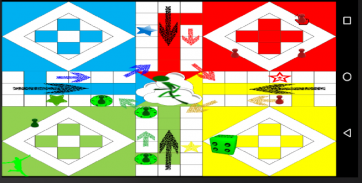
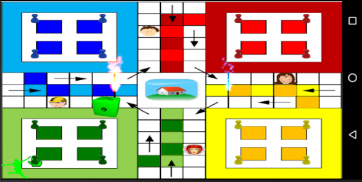

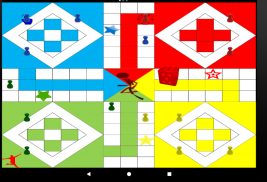
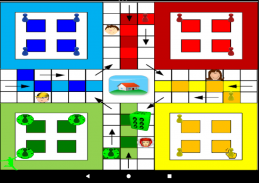
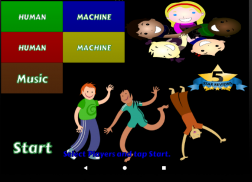
LUDO - Board Game

Description of LUDO - Board Game
Ludo is a strategy board game for two to four players, in which the players race their four tokens from start to finish according to rolls of a single die. Like other cross and circle games, Ludo is derived from the Indian game Pachisi, but simpler. The game and its variants are popular in many countries and under various names.
A famous board game meant for people of all age. It's famous all around the world.
♪ In North America, the game is sold under the brand name Parcheesi. Variations of the game are sold under the brand names Sorry!, Aggravation, and Trouble.
♪ In Spain, it is called Parchís in Spanish and Parxís in Catalan.
♪ In Colombia, it is called Parqués.
♪ In Germany, this game is called "Mensch ärgere" which means "Man, don't get upset", and has equivalent names in many other languages, such as Bulgarian, Croatian, Czech, Dutch, Macedonian, Russian, Serbian, Slovak, Slovene, and Turkish.
♪ In Greece, the game is called "Γκρινιάρης" [Griniaris] ("Grumbler") referring to typical player behaviour.
♪ In Italy, it is called "Non t'arrabbiare" ("Don't get upset").
♪ In the Netherlands, it is called "Mens erger je niet!", which has the same meaning as the German name.
♪ In Poland, it is commonly referred to as "Chińczyk" ("The Chine[s]e"), though an equivalent form to the German name also exists.
♪ In Estonia, it is called "Reis ümber maailma" (Trip around the world).
♪ In Malaysia and Singapore, it is called "飞机棋".
♪ In Sweden, it is known as "Fia", a name derived from the Latin word fiat which means "so be it!" Common variations on the name are "Fia-spel" (Fia the game) and "Fia med knuff" (Fia with push). In Denmark and Norway though, the game is known as Ludo.
♪ In Vietnam, it is called "Cờ cá ngựa".
♪ In France, it is called "Petits Chevaux" ("Little Horses") or "Le Jeu de Dada" ("The Game of Dada") (dada being a colloquial word for "horse") and typically played with horse-headed pieces.
♪ In Albania, it is called "Mos u Nxeh" (Don't get angry).


























